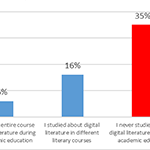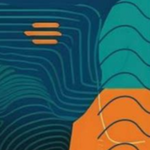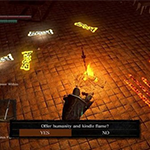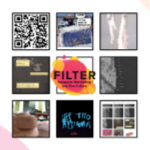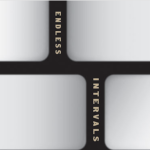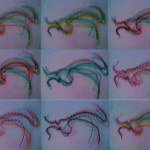Eman Younis and Hisham Jubran's study investigates Arab university students' exposure to digital literature and their attitudes toward it. In doing so, they discover students feel the inclusion of digital literature in university-level literature courses should be a scientific necessity and that its absence in the curriculum compromises their professional development.
Cecily Raynor reviews Cartografía crítica de la literatura digital latinoamericana, a collection of essays that shines the spotlight on the vast and diverse corpus of Latin American electronic literature.
Austin Anderson applies a videogame formalism methodology to Dark Souls and argues that the game's various ludic-textual structures challenge player expectations, encouraging them to engage with the game's multiplayer systems and explore fan-made paratextual materials. By defining the player's movement between these structures as an act of hyperlinking which creates a networked community, Anderson identifies these as key characteristics of what he calls the 'networked hyperlinked videogame'.
This time on Off Center, Scott Rettberg is joined by Sarah Edmands Martin, a designer and researcher at the University of Notre Dame. Her research takes place at the intersection of visual communication design, critical fabulation, and media aesthetics. In this episode they discuss speculative design.
Sarah Whitcomb Laiola and Richard Snyder share their experience of cataloguing Instagram 'zine Filter for a travelling exhibition with The NEXT, the Electronic Literature Organisation's museum, library, and preservation space. Arguing that platforms are not merely tools for distribution but shape the very literariness of a work, Laiola and Snyder suggest that e-lit archival practices must evolve to recognize and account for the integral role contemporary social media platforms can play.
In these edited and approved transcripts from interviews conducted by Will Luers for the ebr@30 online commemoration, Ewan Brenda, Davin Heckman, Lori Emerson, Steve Tomasula, Lai-Tze Fan, Rob Wittig, Will Luers, and Tegan Pyke reflect on how they came to know Joe Tabbi and got involved with ebr.
Will Luers contributes to current debates on AI by engaging with Jeffrey West Kirkwood's Endless Intervals: Cinema, Psychology, and Semiotics. Luers examines the parallels between AI and cinema technology as "thinking machines," both structured around intervals that produce perceptual and conceptual unities. What we have, in cinema and AI no less than human cognition, "is a reevaluation of the unity of consciousness."
Gabriela Jarzębowska reviews Interpreting Meat by Teddy Duncan Jr. By unmasking the hidden libidinal and discursive investments in meat, Duncan urges us to imagine a different kind of relationship with animals—one grounded not in domination or guilt, but in awareness, responsibility, and a reshaping of desire itself.
Hannah Ackermans introduces The Living Glossary of Digital Narrative via a discussion of digital communities and unintentional acts of exclusion, highlighting the importance of a shared vocabulary for accessibility in scholarship.
Rob Wittig and Talan Memmott reminisce about their favorite Netprovs, discuss the ways improvisation on the Web can be tackled, and theorize the future possibilities of the Netprov form after a step back from the platform formerly known as Twitter.
This time around on the Off Center podcast, Scott Rettberg is joined by Kristine Jørgensen, professor of media studies and PI at the Center for Digital Narrative. They discuss male gaming culture and transgressive games, her involvement in the Games and Transgressive Aesthetics project, and as her ongoing project Understanding Male Gamers.
Tuuli Hongisto explores the problems of cyborg authorship through the presentation of ChatGPT as a co-author of literary works on Amazon. Rather than shying away from admitting that an AI took part in the writing process, these authors position ChatGPT and other LLM's as authors with their own rights, rather than tools.
Experimental storyteller and digital artist Mez Breeze explores the liminal spaces of The Backrooms, a found footage web series which is based on a popular creepypasta of the same name. In doing so, Breeze confronts the feelings of alienation and predation inherent to late-stage capitalist society.
In this conversation with Yolanda De Gregorio Robledo, e-poet María Mencía discusses her journey as an artist and scholar. In doing so, María reveals her artistic interests, the influences the electronic literature community has had on her work, and the importance of highlighting women's contributions to the field of electronic literature as a whole.
Scott Rettberg talks to Patrick Jagoda—University of Chicago professor and cofounder of both the Game Changer Chicago Design Lab and the Transmedia Story Lab—about transmedia storytelling, alternate reality games, the differences in narrative design for video games and ARGs, and the role ARGs can have in a community.
